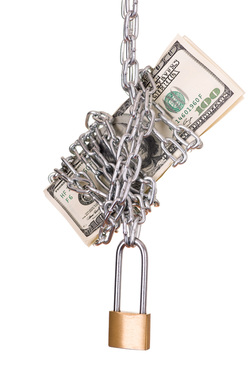
By Nici Kersey
Who died? I thought, then wished I could un-think. Maybe it’s good news. I’ve been selected as an extra for the next Hunger Games movie? Or maybe Cookie Monster did something awesome on Facebook (again).
Nope. This time, it was USCIS with an exciting announcement about E-Verify’s latest enhancement.
One e-mail was from USCIS. The dozens of other messages were from colleagues, clients, and friends spreading the news. It’s like E-Verify got implants, I thought, then wished I could un-think.
Yes, the most exciting news in my social circle (aside from new photos circulating of Angelo that suggest he may be starting a town car service) has to do with E-Verify. I know that this is lame. Despite the rare incidents (like one of my clients semi-publicly calling me “Chick Norris”) that make me feel hip and cool, I have embraced my nerdiness.
Here’s the announcement. (The E-Verify announcement. Not the Paparelli Town Car Grand Opening announcement.)

What does this mean? It means that E-Verify is actually getting better at doing what it’s supposed to do: verify employment authorization. Since its inception, one of the biggest weaknesses of the system has been that it cannot detect identity theft. So long as an employee provided someone’s real data, E-Verify would return an “employment authorized” result, even if that data belonged to the person’s brother, cousin, father, my daughter, or a complete stranger.
Will that still happen? Sure. But not as often. It’s not yet clear what the criteria are for locking an SSN, which is why my implants analogy is appropriate: Will the enhancement pass as genuine, actually improving E-Verify, or will it prove to be more trouble than it’s worth, getting in everyone’s way?
If 25 people suddenly get jobs in the Chicago area, and they all have the same name and SSN, the latest announcement suggests that E-Verify would lock that SSN and would require each employee who used it to either come forward with proof that he/she is the “Real Slim Shady” (viewer discretion is advised) or to effectively abandon his/her job.
But will it go too far? Our bank locks my husband’s debit card every time he tries to make a purchase more than 5 miles from our home. This prompts mass hysteria, as we move so frequently that the security questions he is asked by the bank seem like advanced existential philosophy questions. The name of the street where your doctor’s office is located? Neighbor’s dog’s name? Your boss’s favorite holiday dish? (I’m going to start answering every security question with the word Pumpkin.)
The e-mails from my colleagues were mixed. One said, “This will be all kinds of fun,” dripping with sarcasm. Most clients were excited about the news, though they aren’t looking forward to the increase in mis-matches that they will have to resolve. All of my fake ID vendor buddies, of course, hated the news. (Dear NSA, I hope you are well. This is a joke. Love always, Nici.)
Like it or not, this is a big deal.
It means that we are one step closer to a national ID card and a system in which we can “lock” our own SSNs and identities so that others cannot use them to obtain credit and/or jobs.
It means that people may find out sooner when their own identities have been compromised. Calls to the FTC will probably increase.
It confirms that the federal government continues to work toward enforcement and deterrence, even if comprehensive immigration reform really has died. (We’re not getting any carrots here, just sticks.)
It proves that we are (still) moving toward a law requiring that employers use E-Verify nationwide.
It means that it will become more expensive to get a good fake identity. Those ID sellers who care about their reputations (yes, their reputations for being really good criminals) will have to work harder to satisfy the market, and fake cards are likely to become more expensive. (And there will be a greater demand for cheap, bad cards too, as people may have to buy several cards/identities before one works.)
It may also add to the increasing paranoia of people like my father, who looked into having OnStar removed from his vehicle due to his concern that the government might be using it to spy on him. I implore you to not tell him about this, or my next visit home may find my parents cooking all of their meals over an open flame in the back yard.
For employers, I offer the following suggestions:
- If you already use E-Verify, consider a training session for your team to ensure proper use of the system and to update them on this new development. Focus on non-discrimination training.
- Review your immigration policies and update them as appropriate.
- Make sure you have a protocol in place for handling “tips” about your employees’ work authorization (or lack thereof), as this is likely to lead to calls/e-mails/letters from the “Real Slim Shady” alleging that one of your employees is working under his name. (If your workforce is unionized, however, first check the collective bargaining agreement and talk to your labor counsel -- Seyfarth Shaw's are the best, and Angelo can introduce you.)
- Continue to monitor E-Verify requirements. Consult with immigration and labor counsel about the pros and cons of registering before it becomes mandatory.

 RSS Feed
RSS Feed
